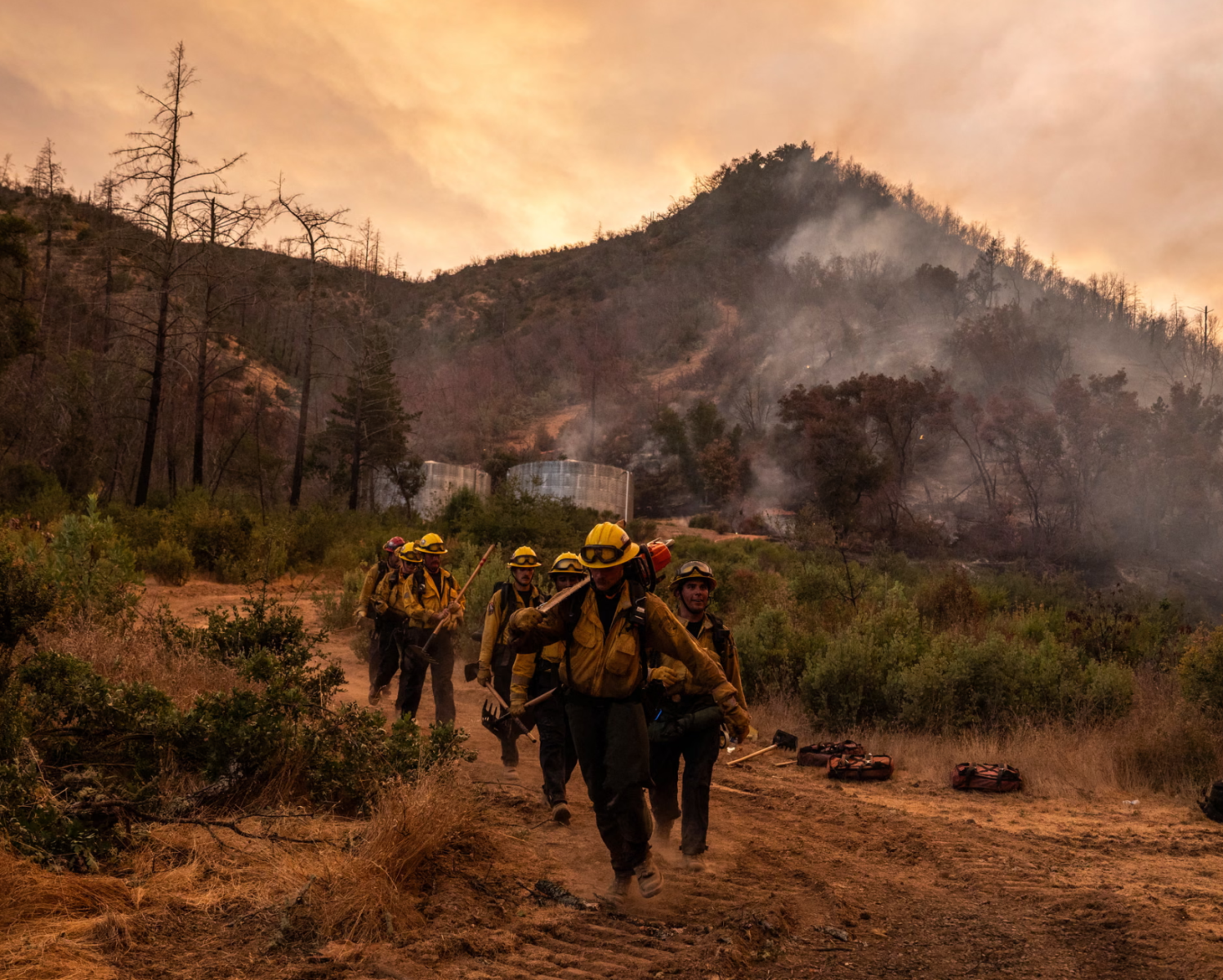
The largest blaze, known as the Pickett fire, broke out in Napa County on Thursday and had grown to more than 2,100 acres (850 hectares) by Friday morning. Officials said the fire, burning near the wine-producing town of Calistoga, was 0% contained, forcing evacuation orders and warnings for hundreds of residents.
Firefighters have been working in triple-digit heat and rugged terrain, according to the state fire agency Cal Fire. "Firefighter safety will be an emphasis once again Friday, with temperatures expected to reach into the upper 90s," the agency said in an update.
So far, no injuries or structural damage have been reported. "We'd like to remind everyone to be vigilant and have a plan as we continue with suppression efforts," said battalion chief Bob Todeschini in a video message.
Extreme conditions fueling fire risk
The National Interagency Fire Center (NIFC) warned Friday that hot, dry, and unstable conditions would persist along much of the West Coast, with temperatures running 10-25°F above normal. Low humidity and the possibility of dry thunderstorms could spark new fires.
This year has already seen more than 44,800 fire ignitions nationwide—the highest in a decade—burning roughly 912,400 acres. More than 16,500 firefighters and support staff are currently deployed across the country.
Even after the current heatwave eases, forecasters say fire danger will remain elevated through September and into October, with vegetation across California, Nevada, Utah, Arizona, Colorado, and Wyoming left parched and overgrown.
Heatwave adds to public health threat
The National Weather Service (NWS) has issued extreme heat alerts from Arizona to Washington, warning of record-breaking highs and dangerously warm nights that offer little relief. "Without air conditioning or cooling, the body can't recover, increasing the risk of heat illness," the NWS said.
Extreme heat is already the deadliest weather-related hazard in the US, claiming more lives each year than hurricanes, floods, or tornadoes. Scientists say climate change is making heatwaves longer, more frequent, and more intense, especially in urban areas where concrete and asphalt amplify high temperatures.
The current heatwave is expected to ease in California and the Southwest after Sunday, but forecasters warn the Pacific Northwest could remain under oppressive conditions into the middle of next week.